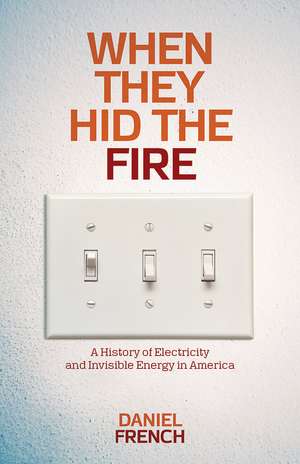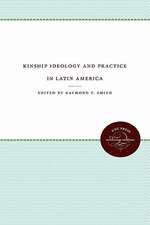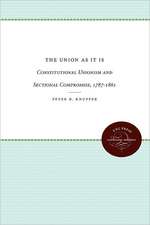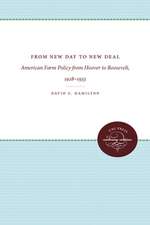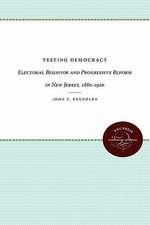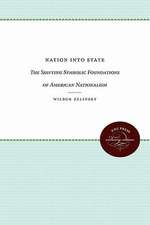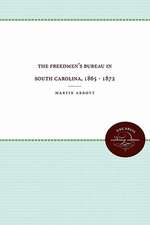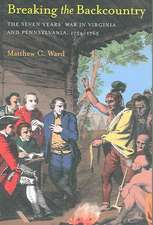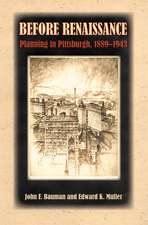When They Hid the Fire: A History of Electricity and Invisible Energy in America: INTERSECTIONS: Histories of Environment
Autor Daniel Frenchen Limba Engleză Paperback – 31 ian 2017
When They Hid the Fire examines the American social perceptions of electricity as an energy technology that were adopted between the mid-nineteenth and early decades of the twentieth centuries. Arguing that both technical and cultural factors played a role, Daniel French shows how electricity became an invisible and abstract form of energy in American society. As technological advancements allowed for an increasing physical distance between power generation and power consumption, the commodity of electricity became consciously detached from the environmentally destructive fire and coal that produced it. This development, along with cultural forces, led the public to define electricity as mysterious, utopian, and an alternative to nearby fire-based energy sources. With its adoption occurring simultaneously with Progressivism and consumerism, electricity use was encouraged and seen as an integral part of improvement and modernity, leading Americans to culturally construct electricity as unlimited and environmentally inconsequential—a newfound “basic right” of life in the United States.
Din seria INTERSECTIONS: Histories of Environment
-
 Preț: 436.80 lei
Preț: 436.80 lei -
 Preț: 200.41 lei
Preț: 200.41 lei -
 Preț: 400.33 lei
Preț: 400.33 lei -
 Preț: 430.27 lei
Preț: 430.27 lei -
 Preț: 359.45 lei
Preț: 359.45 lei -
 Preț: 492.26 lei
Preț: 492.26 lei -
 Preț: 427.77 lei
Preț: 427.77 lei -
 Preț: 459.98 lei
Preț: 459.98 lei -
 Preț: 500.91 lei
Preț: 500.91 lei -
 Preț: 333.77 lei
Preț: 333.77 lei - 15%
 Preț: 457.24 lei
Preț: 457.24 lei -
 Preț: 461.72 lei
Preț: 461.72 lei -
 Preț: 320.52 lei
Preț: 320.52 lei -
 Preț: 387.44 lei
Preț: 387.44 lei
Preț: 350.79 lei
Nou
Puncte Express: 526
Preț estimativ în valută:
67.13€ • 72.90$ • 56.39£
67.13€ • 72.90$ • 56.39£
Carte tipărită la comandă
Livrare economică 22 aprilie-06 mai
Preluare comenzi: 021 569.72.76
Specificații
ISBN-13: 9780822964254
ISBN-10: 0822964252
Pagini: 192
Dimensiuni: 140 x 216 x 20 mm
Greutate: 0.32 kg
Ediția:1
Editura: University of Pittsburgh Press
Colecția University of Pittsburgh Press
Seria INTERSECTIONS: Histories of Environment
ISBN-10: 0822964252
Pagini: 192
Dimensiuni: 140 x 216 x 20 mm
Greutate: 0.32 kg
Ediția:1
Editura: University of Pittsburgh Press
Colecția University of Pittsburgh Press
Seria INTERSECTIONS: Histories of Environment
Recenzii
"When They Hid the Fire is an important historical study that helps us understand how the electric power system—a key element of modern society’s infrastructure—became invisible. The unseen nature of electricity has had profound policy implications because consumers generally have no idea that power production often results in serious environmental degradation. This book forces readers to confront their history and to think about how their energy futures might need to change." —Richard F. Hirsh
, Virginia Tech University
"This book provides a captivating account of the challenges faced by researchers employing innovative approaches to carry out environmental history research and outlines a number of refreshing methodological opportunities ahead." —Environment and History
"French documents an important aspect of the historical change brought by electrification and, by connecting the history of science and technology with cultural history, makes an important contribution to scholarship on the history of electricity." —Robert Lifset, The Journal of American History
“Provides a concise and interesting summary of energy use in the United States. . . . French’s book covers a lot of ground quickly in an accessible way, this makes it a good candidate for an undergraduate or introductory reading on the history of American energy technologies.” —Technology and Culture
Notă biografică
Daniel French is an adjunct professor of history at the University of Toledo, where he teaches the history of business and technology. He is also an adjunct instructor of history at Jackson College in Jackson, Michigan.
Descriere
This book examines American social perceptions of electricity as an energy technology, between the mid-nineteenth and early decades of the twentieth centuries. Arguing that both technical and cultural factors played a role, Daniel French shows how electricity became an invisible and abstract form of energy in American society. As advancements allowed for an increasing physical distance between power generation and power consumption, electricity became consciously detached from the environmentally destructive fire and coal that produced it. Adopted simultaneously with Progressivism and consumerism, electricity use was encouraged and seen as an integral part of improvement and modernity, leading Americans to culturally construct electricity as unlimited and environmentally inconsequential—a newfound “basic right” of life in the United States.
